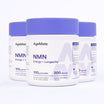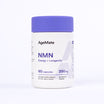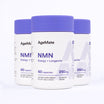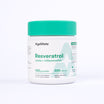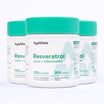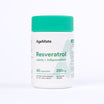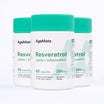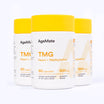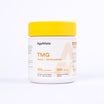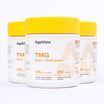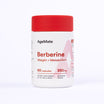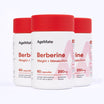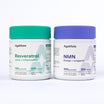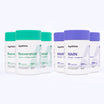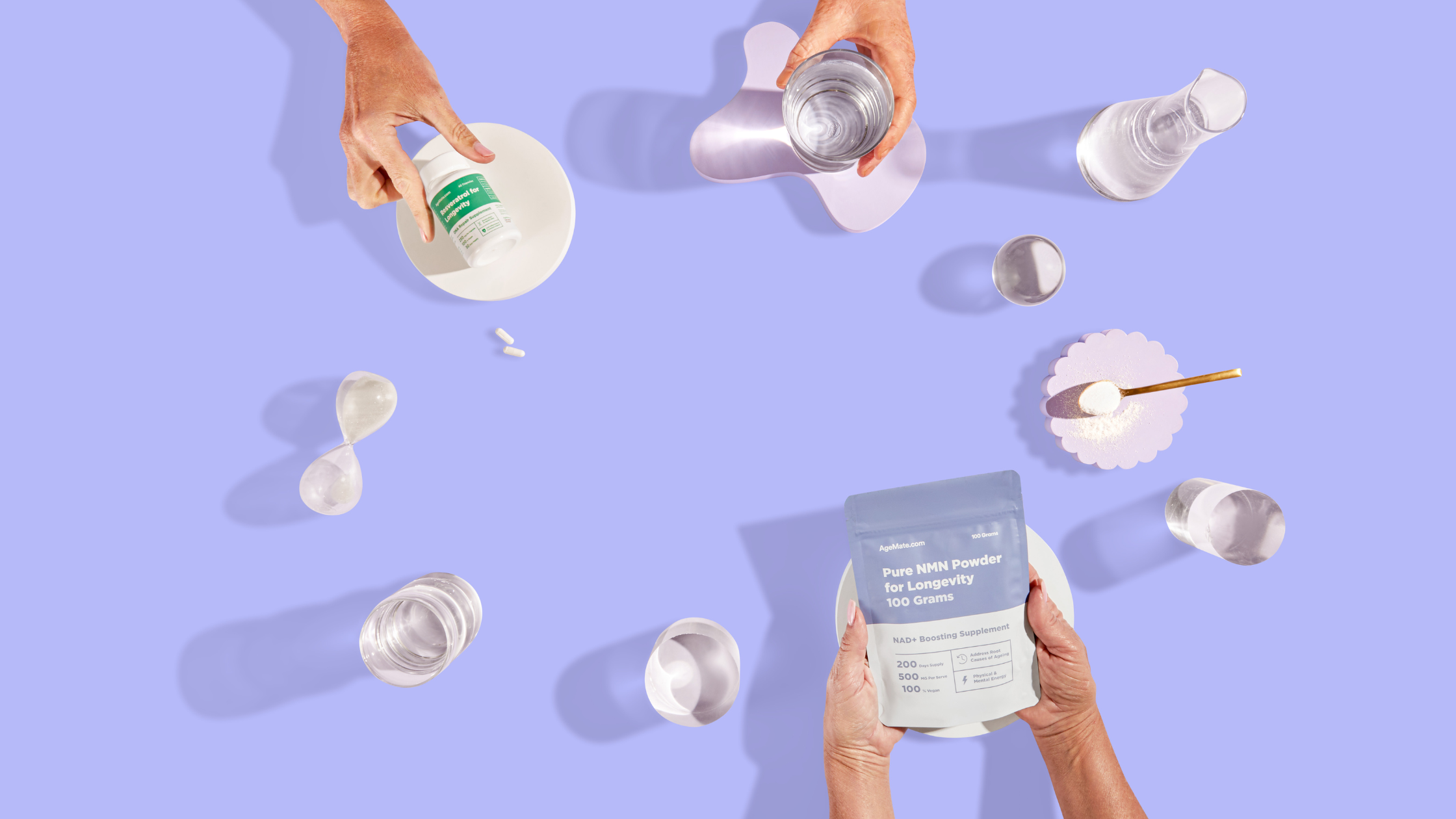Key Takeaways:
- NMN boosts NAD+ levels, supporting energy, DNA repair, and reducing age-related decline.
- NMN may improve skin elasticity and reduce wrinkles by combating oxidative stress.
- NMN enhances metabolism and muscle function, but more human research is needed.
NMN has become a hot topic in the anti-ageing world, especially for its potential to boost longevity. NMN is a precursor to NAD+ (Nicotinamide Adenine Dinucleotide), a coenzyme critical for energy production, DNA repair, and overall cellular health. As we age, our NAD+ levels naturally decrease, leading to age-related issues. The big question is: can taking NMN reverse the effects of ageing?

How Long Does It Take for NMN to Show Results?
The timeframe for NMN to have noticeable effects can vary depending on the individual and the condition being targeted.
- Long-term use (12 months) in mice showed reduced age-related decline, with improved metabolism, physical activity, and general health markers (R).
- Shorter studies (40 days) in humans and mice showed improvements in areas like serum metabolism and even gut microbiota composition. Telomere length, a key indicator of ageing, also saw positive changes (R, R).
- In human trials, older men who took NMN for 6 to 12 weeks saw significant boosts in blood NAD+ levels, which resulted in improved gait speed and muscle performance (R).
- Mice treated for 8 weeks showed better artery elasticity, potentially reversing age-related stiffening (R).
Can NMN Improve Skin Ageing?
NMN’s role in improving skin health is an exciting area of study. Oxidative stress and mitochondrial dysfunction are major contributors to skin ageing. NMN has been shown to reduce the production of harmful reactive oxygen species (ROS), which can lead to wrinkles and sagging skin (R).
In human dermal fibroblasts (skin cells responsible for producing collagen), NMN enhanced cellular health by promoting antioxidants and reducing inflammatory markers. This points to its potential for improving skin elasticity and reducing the appearance of fine lines (R).
Although systemic effects like improved blood circulation and reduced oxidative stress may indirectly benefit the skin, more direct human studies are needed to confirm NMN's potential in skincare.

Does NMN Make You Look Younger?
NMN works at a cellular level, improving DNA repair, boosting mitochondrial function, and reducing oxidative stress—all factors that contribute to a more youthful appearance (R). As your cells become more efficient, it’s possible to experience changes like:
- Better skin tone
- Increased energy and vitality
- A more youthful glow from improved cellular health
However, these effects may be subtle and take time to become visible. The key is consistency in supplementation, combined with a healthy lifestyle.
How Much Can NMN Extend Lifespan?
While NMN has shown promise in improving various markers of ageing, as research is relatively new, the question of whether and how much it extends lifespan remains under investigation.
In animal studies, NMN supplementation improved metabolism, enhanced physical activity, and better insulin sensitivity (R). These factors could contribute to increased longevity, but translating these results to humans requires more research.
Currently, the evidence suggests that NMN could enhance the quality of life as you age.
Interesting Research Findings on NMN
Here are some fascinating discoveries about NMN that suggest its broader anti-ageing potential:

- Female Reproductive Ageing: NMN supplementation has been shown to rejuvenate oocyte (egg) quality in animal models, which restored fertility. This indicates NMN’s potential role in reversing some aspects of reproductive ageing (R).
- Cognitive and Vascular Health: NMN improves microvascular health in the brain, reducing oxidative stress and helping blood vessels regenerate, which is crucial for preventing cognitive decline (R).
- Muscle Health: In prediabetic women, NMN supplementation has shown an increase in muscle insulin sensitivity, a function that typically declines with age (R).
These findings suggest NMN’s ability to tackle multiple aspects of ageing, from reproductive health to muscle function.
Can NMN Reverse Ageing Completely?
The research is still evolving, and while NMN can improve many markers of ageing, reversing the process entirely remains out of reach. NMN may help you look and feel younger by improving your body’s ability to repair itself, but it’s just one part of a broader longevity strategy.
Conclusion
NMN offers exciting potential in slowing down the ageing process by boosting NAD+ levels, improving cellular health, and reducing oxidative stress. While more research is needed to fully understand its long-term benefits, it is clear that NMN plays a role in enhancing the quality of life as we age. From better skin health to improved muscle function, the evidence supports its benefits.
Maximise your anti-ageing routine with our Longevity Blend, packed with NMN, spermidine, and Pterostilbene to support healthy ageing. Nourish your cells and take proactive steps to feel younger, healthier, and more energised.



